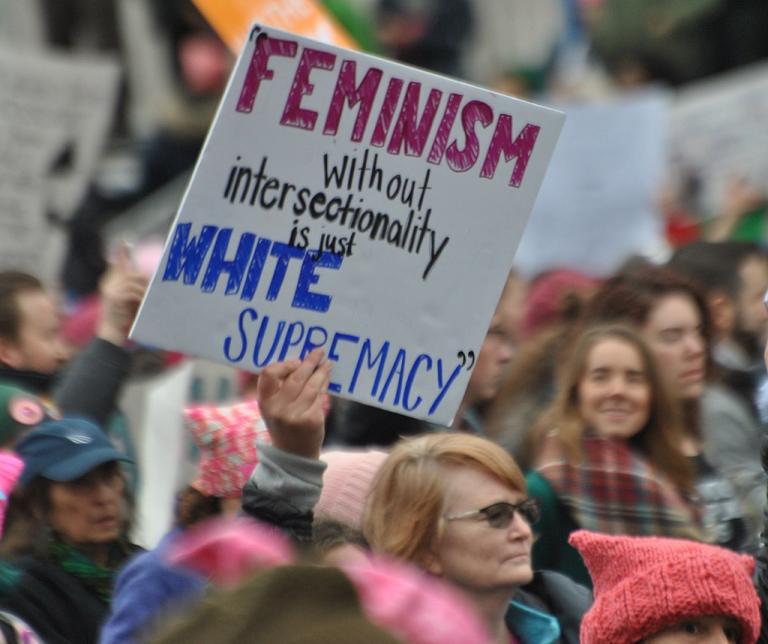
If intersectionality has become a religion, it may be on the verge of schism.
The principle of intersectionality is that all of the oppressed–due to sex, race, sexual orientation, gender preference, disability, etc.–should support each other. Also that an oppressed individual can have multiple identities, some of which may be oppressed and some of which may be privileged. A white woman who is also a lesbian is privileged because she is white, but marginalized because she is a lesbian. A black man who is transgendered is privileged because he is a man, but he is marginalized because he is black and transgendered. These identities “intersect” with complex ways, but it is possible to “check one’s privilege” and become an “ally” of groups one does not belong to.
But one group with a long history of oppression tends to be excluded: Jews. Palestinians are included in the intersectional community, as are Muslims in general, whom the Left portrays as being oppressed by Westerners in general and Israel in particular. But many African-Americans also harbor suspicion of Jews.
The Jewish magazine Tablet has published an investigative report on anti-semitism within the Women’s March, the organization responsible for the annual nationwide protests that have become a major forum for the anti-Trump “resistance” and for promoting intersectionality.
It has long been known that the Women’s March has been associated with Nation of Islam leader Louis Farrakhan, who is notorious for his hatred of Jews. His black Muslims are in charge of security at Women’s March events. But the Tablet story has found examples that go beyond that. It tells about a meeting of Women’s March leaders who berated someone in the room because she was a Jew. Why? Because Jews were allegedly behind the slave trade. But this young liberal woman had nothing to do with that! Nevertheless, since the intersectionalists hold to collective responsibility, they blamed her because of her ethnic heritage.
Read the discussion by Alexandra Desanctis, who concludes:
The apparent bigotry of women such as Sarsour and Mallory seems to be a feature, not a bug, of their identity-based ideology and their insistence on intersectionality. A narrative of historical, society-wide victimization is at the heart of their vision of progress. And any such story requires a hierarchy of grievances, which naturally separates the interest groups supposedly tied together by their shared victim status.
At the same time, every story of victimization requires a victimizer. Intersectionality and its accompanying goal of privileging the powerless necessarily requires identifying and attacking the powerful oppressors — whether it be the specter of capitalism, the ogre of white male privilege, or a figurehead such as Donald Trump. In the case of Women’s March leaders, the search for a villain has taken a sinister turn into anti-Semitism.
Of course, most left-wing agitators drawn to identity politics as a means of motivating the alienated will not go so far as to vilify or hate Jewish people. But the devolution of the Women’s March serves as a cautionary tale about what can happen to political movements that idolize victimhood and invent useful enemies to energize the oppressed.
And other issues loom on the intersectional horizon. Muslims do not feel intersectional with gays, to put it mildly. Nor do they tend to be sympathetic to feminism, or women in general.
Right now, the various groups that invoke identity politics have the common enemy of the Trump administration to hold them mostly together, but the ideology will likely do what Marxist Leftists say will happen to Capitalists: collapse due to its internal contradictions.
Photo by Edward Kimmel from Takoma Park, MD [CC BY-SA 2.0 (https://creativecommons.org/licenses/by-sa/2.0)], via Wikimedia Commons














